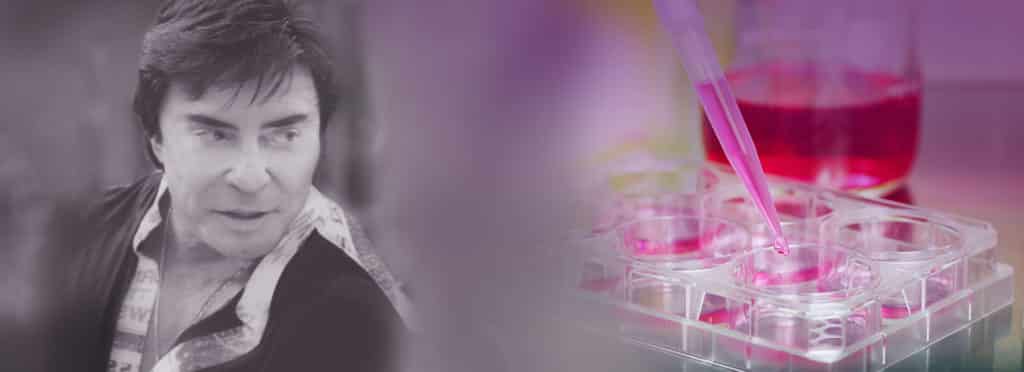LSU Health New Orleans Joins AACR Project GENIE
LESLIE CAPO – LSU Health Sciences Center Media Contact Office: 504-568-4806 | lcapo@lsuhsc.edu Image sourced from News and Updates | Project


When New Orleans-born restaurateur Al Copeland lost his battle with Merkel Cell Carcinoma in 2008, writer Chris Rose wrote, “It’s impossible not to admire the guy, what he did, how he did it and who he made himself to be. That song “My Way”? Yeah, that was his song. Except he was no Sinatra. He was our Elvis.”
While Al Copeland was famous for living large, he never forgot his humble beginnings. His father left the family shortly after Al’s birth, and the family lived at one point in the St. Thomas Projects. Al didn’t complete high school, but he did go on to accomplish great things, including founding Popeye’s Chicken & Biscuits, Copeland’s of New Orleans and Cheesecake Bistro by Copeland’s. Today, his vision is bringing new treatments and the dream, of a cure to Louisiana.
Louisiana has high cancer rankings, yet receives less than 1% of nationally awarded financial resources for cancer research. Copeland, Jr. believes we owe it to Louisiana to fill the gap in funding for our state’s fight against this ferocious disease. With that goal in mind, the Al Copeland Foundation launched The Copeland/LSU Partnership in Cancer, Viruses & Immunotherapy. The purpose: to identify new approaches to cancer treatment and prevention.
In 2011, the Al Copeland Foundation, the Cancer Crusaders and the Louisiana Board of Regents joined forces to raise $1 Million for the Al Copeland/Cancer Crusaders Endowed Chair in Neuroendocrine Cancer at LSU Health New Orleans. Dr. Augusto Ochoa was appointed to serve in this Chair and oversee this important, life-saving research.
According to Dr. Steve Nelson, Dean of LSU Health New Orleans School of Medicine, “Dr. Augusto Ochoa is a preeminent scientist whose contributions include discovering signature changes in the immune system that indicate cancer has blocked the body’s protective immune response allowing it to grow and spread.”
At LSU Health New Orleans, Dr. Ochoa founded and now leads the cancer immunology program. The Al Copeland Foundation had previously provided the LSU team three valuable pieces of equipment. These machines were ultimately a necessary component to participating in the breakthrough Merkel Cell Trial because they demonstrated that Dr. Ochoa’s program was at a high enough scientific level to be able to participate in these cutting edge clinical programs. “It’s a miracle it lined up like it did,” said Copeland, Jr.
Kathleen Gross Thomas, Foundation Director for the Al Copeland Foundation, explained: “No one was doing trials or research on Merkel Cell Carcinoma locally. We set out to bring the research home.”
The Merkel Cell Trial is researching a drug known as MK 3475 that kick starts a person’s immune system to battle virus-based cells without chemotherapy or radiation. Today, LSU is one of less than a dozen sites in the nation participating in the trial. The Al Copeland Foundation can be proud of the work they have done to bring it here.
“What makes our Foundation such a unique fundraising outreach organization is our commitment to return all proceeds to local cancer research,” Copeland, Jr. said. “We found LSUHSC to be the perfect partner to do so.”
Thomas agreed. “When you give to a foundation, you want to be confident that your money is going where it will make the most impact. The LSU Health Foundation New Orleans is button-downed and focused. It insures that the money goes where it’s supposed to go.”

LESLIE CAPO – LSU Health Sciences Center Media Contact Office: 504-568-4806 | lcapo@lsuhsc.edu Image sourced from News and Updates | Project
https://youtu.be/uN6kyv_QsBMhttps://vimeo.com/807284418?embedded=true&source=video_title&owner=98751849 The success of a Cancer Moonshot doctor and his team in bringing the latest cancer breakthroughs to patients where
LESLIE CAPO – LSU Health Sciences Center Media Contact Office: 504-568-4806 | lcapo@lsuhsc.edu New Orleans, LA – Four LSU Health New
Never miss out on ACF’s latest news or upcoming events!
©2021 Al Copeland Foundation. All rights reserved.